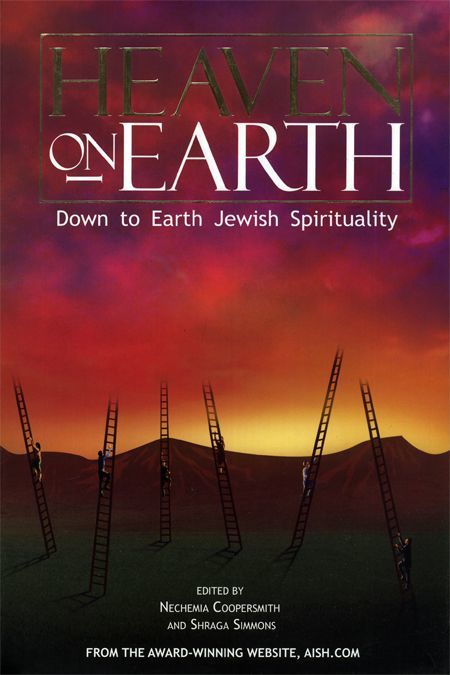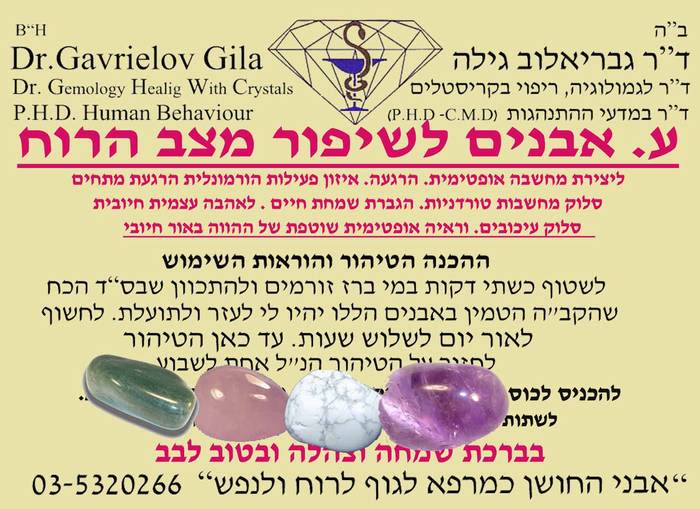
Bridging the Gaps
Whether in family groupings, or workplaces, or our places of worship, the people we will lock horns with the most are going to be the people who aren't like us...

G-d puts us in this world with all sorts of different people, which psychologists have broken down into a few main “types”, based on their different communication styles. If someone is a “kinesthetic”-type (feeling-oriented) communicator, they’ll be feeling a lot more and usually processing what’s going on around them more slowly than someone who is a visual type. Visual people typically run a bit faster. The visual communicator may not be feeling as much as others, but if you don’t look at him enough, for example, he’ll feel hurt, disappointed and rejected. Visual types, as kids, are the ones who are tugging your arm and saying “look at me!”
G-d knows it’s healthy and good to have many different types of communicators in families, for reasons that we’re going to explore now. But before we do, let’s ask a question: Typically, who do we get along with the best – people who are like us or people who are dissimilar? The answer for most of us is that if someone is like us, we feel much more comfortable with them, and we tend to align ourselves with people who are similar. It’s not that we don’t have a lot of “other” qualities too, at least in a more subtle way, but we prefer to hang out with people who share our main, or dominant, qualities.
As a therapist, I’ve met an awful lot of families, and I’ve seen that most of the time, there are sub-groupings or sub-alliances in families. These sub-groups just find it easier to talk, think, and feel with each  other. They feel that they can “be more themselves”, because they are tuned into the same sort of cues.
other. They feel that they can “be more themselves”, because they are tuned into the same sort of cues.
But it’s a terrible loss to just hang around with people like us! G-d didn’t mean for it to be that way. I’ll explain: When everyone we know is similar to us, and doing similar things, how are we going to learn, or change, or grow? And then, there’s another problem that we frequently encounter: the people who aren’t like us are the ones we have the most difficulty with. Whether we’re talking about family groupings, or workplaces, or our places of worship, the people we will lock horns with the most are going to be the people who aren’t like us. And it takes much more effort, will, desire and courage to bridge the gap between ourselves and the people who aren’t like us.
So now we’ve hit the mother of all questions: why bother? Why should we bother trying to get along with awkward, difficult, different types of people that really aren’t our cup of tea? Again, the answer comes back to what G-d wants for us, and not just what we want for ourselves. G-d put those people specifically in our homes, or in our office, in our face, because He wants us to learn from them in some way. Oftentimes, it’s not an easy process, or lesson – but again, G-d wants it that way. He could have made us perfect angels, who had no need to work on ourselves and who didn’t need to be challenged to change and evolve. But He didn’t. He wants us to put the effort in, and to start really growing and developing our latent abilities and aptitudes.
That’s the theory, so now let’s look how this works in practice. When we start out, we’re going to hit one obstacle after another upon beginning to try and bridge the gaps between us and these “other” types of people. This is only to be expected, because the gaps only exist in the first place because these people aren’t so easily suited for us. This lady over here – we can’t stand the sound of her voice! That man over there – we can’t stand the way he eats! We feel so threatened by their “differences”, that we automatically start zeroing in on the negative. We don’t – can’t! – look at the positive, because we’re not yet using that positive in ourselves, and we find that very troubling, at least on one level. But in order to become more balanced human beings, we really need the people we’re having trouble with. At the end of the day, they are going to do us much more good than anyone else.
It takes emuna and courage to go for situations and relationships that naturally we want to avoid, because it’s much easier to not have a relationship with those types of “different” people. At this point, we should make a distinction between people you can easily avoid and get away from, and people you can’t. For example, if G-d put someone in your immediate family that you find very difficult and that you really can’t get away from, then you really need to have the emuna that this person is in your life for a very positive reason. You’ll have to put a lot of effort into discovering the benefits that are hidden in that relationship – but that’s what G-d wants, and you can’t run away from it.











Tell us what you think!
Thank you for your comment!
It will be published after approval by the Editor.